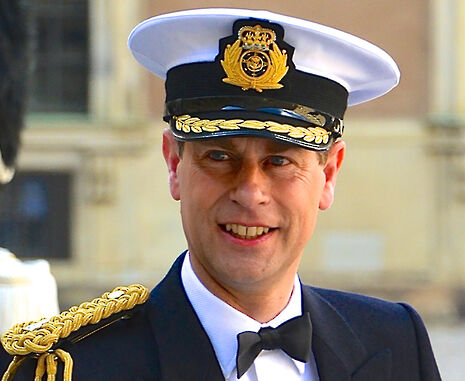Cambridge’s association with royalty only reinforces the elitist stereotypes
Lorcan Canavan speaks about how royals are treated differently by the university, and why last week’s visit by Prince Edward typifies this injustice

On 10th October, Prince Edward returned to Jesus College – his alma mater – to open West Court, their latest development. What appeared to be a relatively harmless, if a bit pompous, event served as a fresh reminder of Cambridge’s darker side of unrestrained, blue-blooded elitism. The Ronald Coyne incident from a few months ago certainly typified Cambridge exclusivity; white, aristocratic youth flaunting his privilege at the expense of a homeless man. It is perhaps unsurprising Cambridge has recently engaged in an intense publicity campaign, desperately trying to advertise its accessibility to students from all backgrounds, not just the well-connected and well-endowed. But allowing a famous royal to engage so openly with university life, alumnus or not, only reinforces the negative stereotypes.
If Prince Edward was entirely deserving of his place at the university, this piece would probably read quite differently. Cambridge is and should be open to everyone, including to royalty, so long as they are able to fulfil the entrance criteria. But Prince Edward achieved grades CDD at A level, at a time (the 1980s) when the standard offer from Cambridge was straight As. This rightly caused a lot of controversy. Like Prince Edward, I too chose to study history, a course in which this year offers were as high as A*A*A, a course I worked hard to get the opportunity to study, but he was allowed to do just because of who he was.
Edward didn’t come up to Cambridge on the train last week; he didn’t drive, and wasn’t even driven. No, he arrived at Jesus in his private helicopter. This could have been partially for security purposes, but for young people from disadvantaged backgrounds who are considering attending Cambridge, this image is understandably a little off-putting. It is hard to believe that Jesus could not have picked a more appropriate alumnus to open their new development. Perhaps the philosopher Roger Scruton, or the author and journalist Stephanie Theobald, would have been better choices for the role. Cambridge, a university that has in the recent past shown itself to be an increasingly open and diverse community, should really consider any future public involvement with the royals.
“Cambridge [...] should really consider any future public involvement with the royals”
Cambridge’s questionable links with royalty don’t end with Edward; Prince William also had a fling at the university in 2014. At an initial glance, his time as a Cambridge student looks relatively innocent: he embarked on a ten-week agricultural course, mainly taught at St. John’s College. But on closer look, Cambridge’s elitism really stands out. Upon arriving at John’s, he was received privately by the then vice-chancellor and master. It is unclear beyond his lineage why he should have had such a special welcome; many graduate students at Cambridge would love the opportunity to have a private tour from the vice-chancellor and master of their college. Furthermore, the course itself was designed explicitly for William’s requirements (undoubtedly taking into consideration his various royal duties). Graduate students are busy people and live varied lives; why shouldn’t they have the opportunity to design their own courses too?
If Cambridge genuinely wants to remove its elitist façade, a good place to start would be ensuring that there is a level playing field for all applicants to all courses. Of course, William and Edward were well within their rights to study at Cambridge, but they should have been treated like any other student. Perhaps, with William, Cambridge wanted to be able to advertise the fact that it has educated the future king. But given the university’s immense reputation, this seems unnecessary.
It is important to recognise that the royals have, in some minor ways, become more in touch with the normal world, especially in the case of the Duke and Duchess of Cambridge. Images of William driving Kate and George from the hospital following the birth were very well received. But, let’s not forget that he was driving the latest Range Rover, and was flanked by an entourage of security personnel and vehicles. Prince George, Princess Charlotte and royal baby number three will certainly have more ‘normal’ childhoods, relative to those of past generations of royals. However, one would hope that if any of them decide to apply to Cambridge, or Oxford, or any university, they will be subject to the same process as the rest of us have been, and accepted on their merit alone
 News / Hundreds of Cambridge academics demand vote on fate of vet course20 February 2026
News / Hundreds of Cambridge academics demand vote on fate of vet course20 February 2026 News / Judge Business School advisor resigns over Epstein and Andrew links18 February 2026
News / Judge Business School advisor resigns over Epstein and Andrew links18 February 2026 News / University Council rescinds University Centre membership20 February 2026
News / University Council rescinds University Centre membership20 February 2026 News / Petition demands University reverse decision on vegan menu20 February 2026
News / Petition demands University reverse decision on vegan menu20 February 2026 News / Caius students fail to pass Pride flag proposal20 February 2026
News / Caius students fail to pass Pride flag proposal20 February 2026









